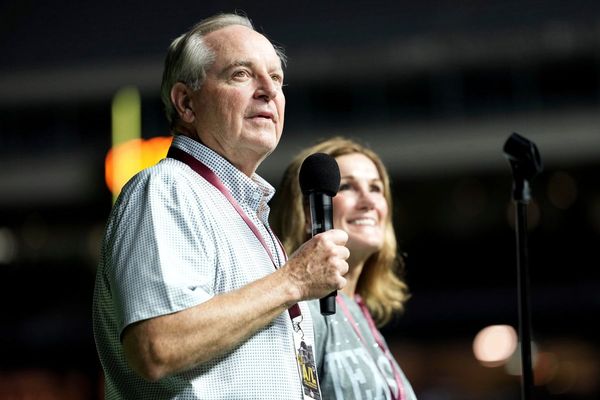When Pat Gelsinger was named Intel CEO in 2021, the chip giant turned to an outsider who was also seen as an insider, a veteran who could set things right at the struggling tech behemoth and give Intel stock a needed boost.
Gelsinger's sudden exit raises a key question: Will Intel look from within its ranks for a new leader? Or will it look outside, perhaps someone who has never been part of the Intel story? Intel's quest for a new leader will also likely focus on one of Gelsinger's big bets as CEO: creating a separate entity for the chip company's manufacturing business.
"I expect that they will look outside of the company," Crawford Del Prete, president of International Data Corp., told Investor's Business Daily. "I expect the board will want a fresh look at the plan."
Intel Stock: Fresh Look At Game Plan
Taking a fresh look at Intel's game plan will likely mean revisiting what has become one of the most controversial aspects of Gelsinger's legacy.
There's a raging debate on whether Intel's decision to create a separate foundry business was a smart move, one that would have been unthinkable at the height of the company's dominance in tech.
Intel emerged as the world's most powerful chipmaker because it controlled every aspect of its chipmaking, from designing its processors to the actual process of manufacturing semiconductors.
In fact, that had been the ideal way of doing business in Silicon Valley. Jerry Sanders, founder of rival Advanced Micro Devices, is know for his famous declaration: "Real men have fabs."
But running fabs, as chip manufacturing facilities are known, is expensive. In fact, the financial burden became so great for AMD that the chipmaker spun off its fabs into Globalfoundries in 2009.
Outsourcing its manufacturing operations transformed AMD into a stronger competitor. Meanwhile, Intel struggled, falling behind in manufacturing technology as other companies led by Taiwan Semiconductor took the lead.
Intel Stock: Roadmap Uncertainty
Intel's decision to set up a separate foundry business was supposed to fix things. But it hasn't, so far.
"While we can debate whether the company's push into foundry with all the heavy investments it entails was the right or wrong decision, it is clear that the core business fundamentals that were supposed to underpin that strategy are much more challenged," Bernstein analyst Stacy Rasgon said in a Monday note.
Raymond James analyst Srini Pajjuri described Gelsinger as "the driving force behind Intel's manufacturing roadmap and foundry strategy."
"The departure does raise questions about whether the roadmap is still on track," he told clients in a note.
Foundry Fumble
While Intel's foundry move remains controversial, IDC's Del Prete argued that "it's too early to call it a mistake."
But "I think it is proving to be far more complicated than anyone thought," Del Prete said. "I do think it will take far more than initially thought to be called a success."
Melius Research analyst Ben Reitzes said in a client note that the foundry business "wasn't remotely ready for primetime."
That business, he argued, "is clearly not ahead of plan — and seems to be a 'later this decade at best' contributor that requires a lot of government help."
Intel did get some government support, emerging as one of the high profile beneficiaries of the CHIPS Act. But the company ended up getting a smaller award.
In any case, questions regarding Intel's foundry business will surely weigh on whoever replaces Gelsinger, Rasgon said.
A Tough Job For New Boss
"This is going to be a tough job for anyone, internal or external, to step into," Rasgon said. "It was a tough situation when Pat showed up, and things look much worse now."
The quest for a new boss, he argued, "would seem to center on what to do with the fabs."
It's going to be a difficult balancing act, Rasgon suggested.
Intel Stock: What To Do With The Fabs
"While keeping them feels like deadweight, and a continuation of the strategy that got Pat out, scrapping them would also be fraught with difficulties around the product roadmap, outsourcing strategy, CHIPS act and political navigation etc."
"There don't seem to be any easy answers here, so whoever winds up filling the slot looks in for a tough ride," Rasgon added.
For now that journey will be led by two interim CEOs – David Zinsner, Intel's chief financial officer, and Michelle Johnston Holthaus, CEO of Intel Products.
The interim leadership team will have "more leeway to make some necessary decisions for now," Rasgon wrote.
But "the situation here seems likely to keep getting worse before it gets better, and the ultimate fate of the company seems even more uncertain," he added.







